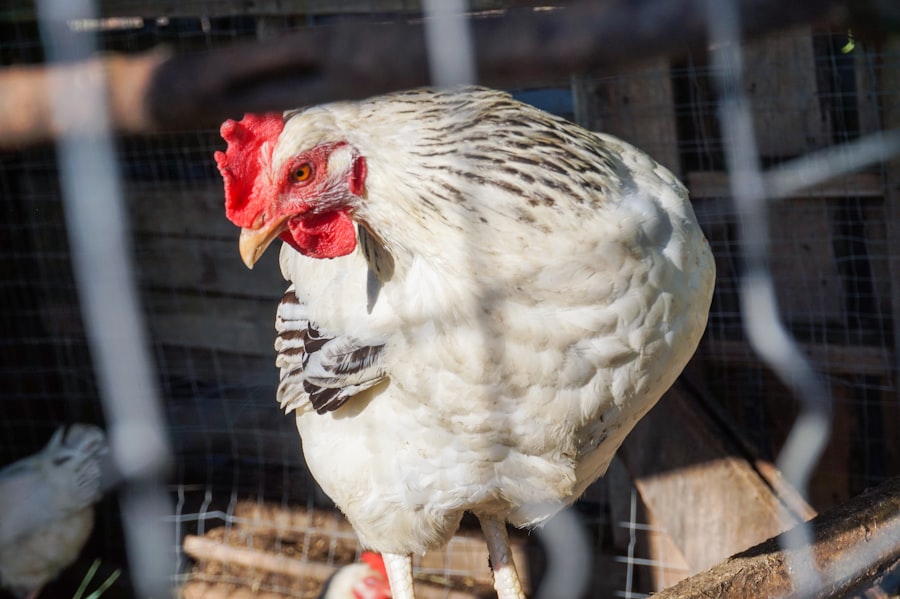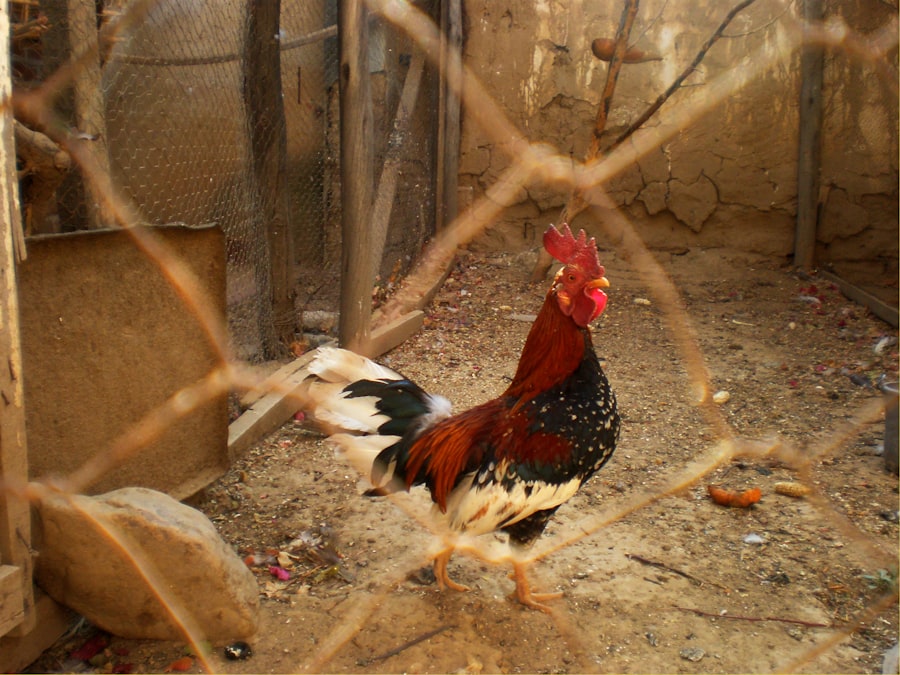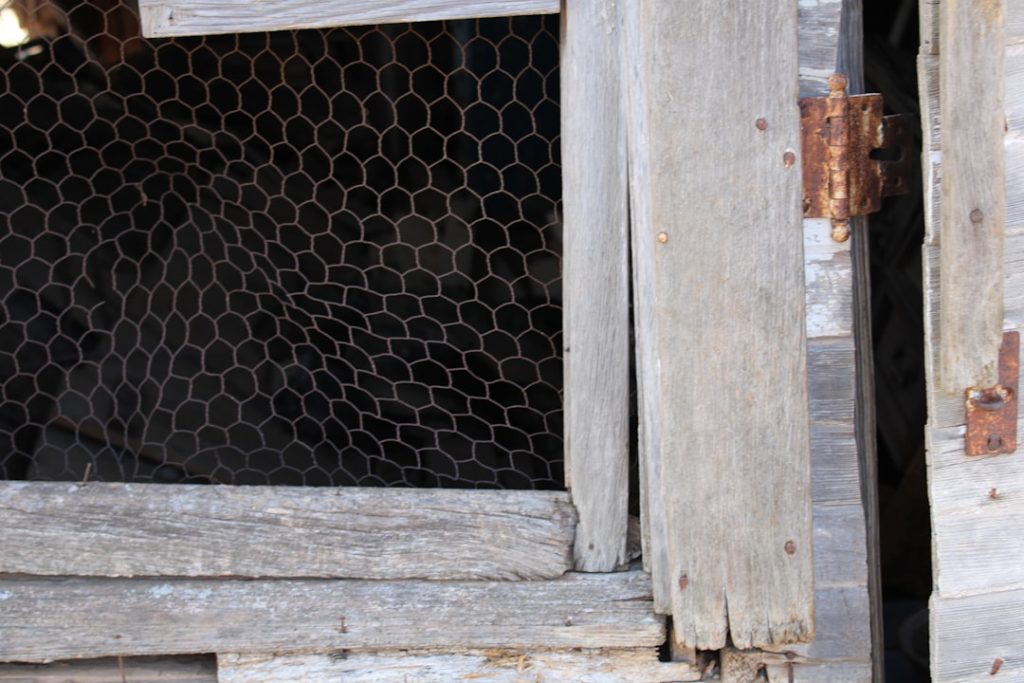Chickens in residential yards can pose various challenges for homeowners who did not intentionally introduce them. To address this issue effectively, it is crucial to first identify the source of the chickens. Possible causes include neighboring properties with chickens that have wandered onto your property, local regulations permitting free-range chickens, or deliberate release of chickens by individuals in the area.
Understanding the origin of the chickens will help in developing an appropriate solution. It is essential to consider the potential consequences of having chickens in your yard. These may include damage to gardens and landscaping, noise disturbances, and possible health concerns.
Assessing the full extent of the problem will aid in formulating a comprehensive plan of action. Additionally, the welfare of the chickens should be taken into account. If the chickens are strays or have been abandoned, it may be necessary to contact local animal control or rescue organizations to ensure their proper care and handling.
Table of Contents
- 1 Creating Physical Barriers: Fencing and Netting to Keep Chickens Out
- 2 Natural Deterrents: Using Plants and Scents to Repel Chickens
- 3 Removing Attractants: Properly Storing Food and Waste to Avoid Drawing Chickens
- 4 Scare Tactics: Implementing Noisemakers and Visual Deterrents to Keep Chickens Away
- 5 Seeking Legal Solutions: Understanding Local Laws and Regulations Regarding Chickens in Residential Areas
- 6 Seeking Community Support: Communicating with Neighbors and Local Authorities to Address the Issue of Chickens in Your Yard
- 7 FAQs
Key Takeaways
- Understanding the Problem: Identifying the Root Cause of Chickens in Your Yard
- Identify the source of the chickens in your yard, such as neighboring properties or local farms.
- Determine if the chickens are attracted to your yard due to food, shelter, or other factors.
- Creating Physical Barriers: Fencing and Netting to Keep Chickens Out
- Install sturdy fencing around your yard to prevent chickens from entering.
- Consider using netting to cover vulnerable areas such as gardens or outdoor dining areas.
- Natural Deterrents: Using Plants and Scents to Repel Chickens
- Plant aromatic herbs and flowers that chickens dislike, such as lavender or marigolds.
- Use natural scents like citrus or vinegar to deter chickens from specific areas.
- Removing Attractants: Properly Storing Food and Waste to Avoid Drawing Chickens
- Store pet food and birdseed in secure containers to prevent attracting chickens.
- Properly dispose of food scraps and compost to avoid drawing chickens to your yard.
- Scare Tactics: Implementing Noisemakers and Visual Deterrents to Keep Chickens Away
- Use motion-activated noisemakers or sprinklers to startle and deter chickens.
- Hang shiny objects or use reflective tape to create visual deterrents for chickens.
- Seeking Legal Solutions: Understanding Local Laws and Regulations Regarding Chickens in Residential Areas
- Research local ordinances and regulations regarding the keeping of chickens in residential areas.
- Consider contacting local authorities or animal control if the presence of chickens violates any laws.
- Seeking Community Support: Communicating with Neighbors and Local Authorities to Address the Issue of Chickens in Your Yard
- Discuss the issue with neighbors to see if they are experiencing similar problems with chickens.
- Work with local authorities and community organizations to address the issue of chickens in your yard.
Creating Physical Barriers: Fencing and Netting to Keep Chickens Out
Physical Barriers: Fencing and Netting
Creating physical barriers is an effective way to keep chickens out of your yard. Fencing and netting can help prevent chickens from wandering onto your property and causing damage to your garden or landscaping. When installing fencing, it’s essential to ensure that it is tall enough to prevent chickens from flying over it, as they are capable of limited flight.
Installing Fencing and Netting
Additionally, the fencing should be buried into the ground to prevent chickens from digging underneath it. Netting can also be used to cover specific areas of your yard, such as vegetable gardens or flower beds, to prevent chickens from accessing these areas. When using netting, it’s crucial to regularly inspect and maintain it to ensure that it remains intact and effective.
Maintaining Aesthetics
By creating physical barriers, you can effectively deter chickens from entering your yard and causing damage. In addition to fencing and netting, it’s essential to consider the aesthetics of these barriers and how they will blend into your yard. There are various options available, including decorative fencing and natural-looking netting, that can help maintain the visual appeal of your yard while still effectively keeping chickens out.
Natural Deterrents: Using Plants and Scents to Repel Chickens

Another approach to keeping chickens out of your yard is by using natural deterrents such as plants and scents. Certain plants, such as marigolds, lavender, and rosemary, are known for their ability to repel chickens due to their strong scents and unappealing taste. By strategically planting these types of plants around your yard, you can create a natural barrier that discourages chickens from entering.
In addition to plants, certain scents can also be effective in repelling chickens. For example, citrus peels or essential oils such as lemon or orange can be strategically placed around your yard to create an unpleasant environment for chickens. It’s important to regularly refresh these scents to ensure their effectiveness.
When using natural deterrents, it’s important to consider the overall impact on your yard and any other wildlife that may frequent the area. It’s also important to research which plants and scents are safe and appropriate for your specific location and climate. By using natural deterrents, you can effectively discourage chickens from entering your yard while maintaining a natural and environmentally friendly approach.
Removing Attractants: Properly Storing Food and Waste to Avoid Drawing Chickens
Chickens are often drawn to yards by the presence of food and waste. To address this issue, it’s important to properly store food and waste to avoid attracting chickens. This includes securely storing garbage in animal-proof containers and ensuring that compost bins are properly sealed and maintained.
Additionally, it’s important to clean up any spilled food or seeds in your yard that may attract chickens. In addition to food and waste, it’s important to consider other potential attractants for chickens, such as water sources. By eliminating standing water or sources of moisture in your yard, you can further discourage chickens from lingering in the area.
By removing attractants, you can effectively reduce the likelihood of chickens being drawn to your yard in the first place. It’s also important to communicate with neighbors about the importance of properly storing food and waste to collectively address the issue of chickens in the neighborhood. By working together to remove attractants, you can create a more effective and sustainable solution for keeping chickens out of your yard.
Scare Tactics: Implementing Noisemakers and Visual Deterrents to Keep Chickens Away
Scare tactics can be an effective way to keep chickens out of your yard by creating an environment that is unappealing or frightening for them. Noisemakers such as wind chimes, motion-activated alarms, or even barking dogs can help deter chickens from entering your yard. These noisemakers create a sense of unpredictability and discomfort for the chickens, making them less likely to linger in the area.
Visual deterrents can also be effective in deterring chickens from entering your yard. This can include hanging shiny objects such as CDs or aluminum foil strips, which create reflections and movements that are unsettling for chickens. Additionally, scarecrows or other visual deterrents can create a sense of threat for chickens, encouraging them to avoid the area.
When implementing scare tactics, it’s important to regularly change the location or type of deterrents used to prevent chickens from becoming accustomed to them. By creating a dynamic and unpredictable environment through scare tactics, you can effectively discourage chickens from entering your yard.
Seeking Legal Solutions: Understanding Local Laws and Regulations Regarding Chickens in Residential Areas

Understanding Local Laws and Regulations
If you’re dealing with chickens in your yard due to local regulations or intentional release by neighbors, it’s essential to research local laws and regulations regarding chickens in residential areas. By familiarizing yourself with local ordinances and zoning laws, you can better advocate for changes or enforcement regarding the presence of chickens in your neighborhood.
In some cases, it may be necessary to work with local authorities or animal control agencies to address the issue of chickens in residential areas. This can involve reporting violations of local regulations or seeking assistance in addressing the root cause of the problem. By seeking legal solutions, you can work towards a more permanent and comprehensive resolution for keeping chickens out of your yard.
Maintaining Positive Relationships
It’s also important to consider the potential impact of legal solutions on relationships with neighbors and the community. Open communication and collaboration with neighbors and local authorities can help address the issue of chickens in a respectful and constructive manner.
In addition to seeking legal solutions, it’s important to seek community support when addressing the issue of chickens in your yard. This can involve communicating with neighbors about the impact of free-range chickens or abandoned animals on the neighborhood and working together to find a suitable solution. By fostering open dialogue and collaboration with neighbors, you can work towards a collective approach for keeping chickens out of residential areas.
Local authorities and community organizations can also provide valuable support in addressing the issue of chickens in residential areas. This can include seeking assistance from animal control agencies, local government officials, or community groups that specialize in animal welfare. By engaging with these resources, you can access valuable expertise and support in addressing the root cause of the problem.
Furthermore, seeking community support can help raise awareness about responsible pet ownership and animal welfare within the neighborhood. By working together with neighbors and local authorities, you can create a more cohesive and proactive approach for keeping chickens out of residential areas while promoting a safe and harmonious community environment. In conclusion, addressing the issue of chickens in your yard requires a comprehensive approach that considers the root cause of the problem, physical barriers, natural deterrents, removal of attractants, scare tactics, legal solutions, and community support.
By understanding the full scope of the problem and implementing a combination of these strategies, you can effectively keep chickens out of your yard while promoting a safe and harmonious environment for both humans and animals alike.
If you’re looking for more information on keeping chickens out of your yard, you might want to check out this article on chicken coop run plans. It provides helpful tips and ideas for creating a secure and comfortable space for your chickens, which can help prevent them from wandering into your yard.
FAQs
What are some effective ways to keep chickens out of my yard?
Some effective ways to keep chickens out of your yard include installing a fence, using chicken wire or netting, using motion-activated sprinklers, and using natural deterrents such as citrus peels or vinegar.
Why do chickens come into my yard?
Chickens may come into your yard in search of food, water, or shelter. They are also known to be attracted to gardens and lawns where they can find insects, seeds, and other food sources.
Are there any natural deterrents that can keep chickens out of my yard?
Yes, there are natural deterrents that can help keep chickens out of your yard. Some examples include citrus peels, vinegar, cayenne pepper, and garlic. These scents are known to repel chickens and can be used around the perimeter of your yard or garden.
What are some potential drawbacks of having chickens in my yard?
Some potential drawbacks of having chickens in your yard include damage to gardens and landscaping, noise from crowing and clucking, and the potential for chickens to carry diseases or parasites that can affect other animals or humans.
Is it legal to keep chickens in my yard?
The legality of keeping chickens in your yard varies depending on local ordinances and zoning regulations. It is important to check with your local government or homeowners’ association to determine if keeping chickens is allowed in your area.
Meet Walter, the feathered-friend fanatic of Florida! Nestled in the sunshine state, Walter struts through life with his feathered companions, clucking his way to happiness. With a coop that’s fancier than a five-star hotel, he’s the Don Juan of the chicken world. When he’s not teaching his hens to do the cha-cha, you’ll find him in a heated debate with his prized rooster, Sir Clucks-a-Lot. Walter’s poultry passion is no yolk; he’s the sunny-side-up guy you never knew you needed in your flock of friends!







